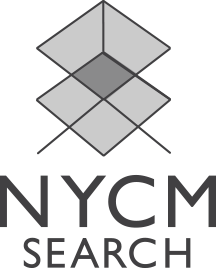Demystifying Resumes: A Guide for AEC and Real Estate Resumes
Job Details
Job ID:Title:Demystifying Resumes: A Guide for AEC and Real Estate Resumes
Location:,
Post Date:08/07/2024
Job Description
Demystifying Resumes: A Guide for AEC and Real Estate Resumes
You are here because you understand, you empathize, and you are either facing this now or have in the past. How does one approach writing a resume. You know the questions, and you likely never learned the answers. Well…this might help. Welcome to….. Demystifying Resumes: A Guide for AEC and Real Estate Resumes
Your boss was just convicted of fraud. Your coworker just found a dream job. Your company stopped serving free coffee. Your boss yelled at you one. last. time.
Let’s get that resume out, but now what!?? Is this right? One page? Two pages. Cover letter? Profile Pic? No?
Project List as a separate document? Integrated into the resume….., no? Yes? Education at the top…., the bottom? Where do I put skills? Certifications? Is software a skill? Do I put my volunteer work? Do I put my YouTube channel? Should I show my whole portfolio now? Later? Ever?
Resumes in the AEC (Architecture, Engineering, Construction) space and the Real Estate Development space can be tricky. There are nuances, requirements, preferences, and details associated with each position within each different space. An acquisitions manager’s resume and deal list will look much different that a development project manager’s resume and project list.
What makes such a simple document such a high impact, high stress, mysterious…shrouded….riddle for job seekers?
One – there is no universal format. Two – every employer is different and every job is different. Three – your job is important, it’s how you make a living and where you spend at least half of your conscious life.
There is no universal format for resumes.
There are generally accepted formats for licenses and certifications, financial documents, passports and id cards, academic documents, medical documents, prescription formats, legal documents, etc…and yes while there is an accepted sense of general format for a resume (i.e., name, contact info, education, employment history, skills, etc…) those are more boxes to check, and there is not any real template that is universally accepted. That is probably good because this allows professionals to highlight aspects of their career and work that they feel are most relevant to the job, or perhaps that they are most proud of. It allows for some creativity, some fluidity – which is generally good. Employers and their open positions may present in a certain way that one might want to address in their resume, so again – it’s good that there is not a set format, but that ambiguity leaves the resume writer with questions right out of the gate.
Contact information – should I include my email, phone, LinkedIn, mailing address? I’ve seen resumes with only an email, I’ve seen resumes with only a name. I’ve seen resumes with too much contact information as well. We don’t want to necessarily see all 7 of your websites that you’ve created for your side hustles and hobbies. As with anything else there is a balance that must be struck. Education – bottom or top? Generally I would say top, but if you’ve not completed your degree, or if you feel that it is not relevant to the job itself, or if there are other things in your recent career history that are more relevant then you may want to highlight those first and put education at the bottom. Summary yes or no? Yes, but keep it simple. Third person or first person? This is a matter of taste, but generally a third person lands better. Skills and Certifications – same as education – if relevant get it up there at the top, if less so – the bottom. So while this lack of universal format for resumes is a reason that you might find resumes to be mysterious, it is a good thing that you have some room to express yourself and align your experience and accomplishments to the employer’s needs.
Every employer is different and every job is different.
Yes, every job is different and every employer is different. But that doesn’t mean that your resume needs to be vastly different for every role to which you apply. Your work experience is what it is, and while you might be able to highlight certain aspects of your career to suit the job, you still need to be transparent, honest and factual about how you present your experience. You also need to be logical. For example, if your most relevant work was two jobs ago – you’re not going to lead with that (I hope), you are still going to list your employment history chronologically. But you may address that alignment in your summary / objective or even cover letter. And a little bump for the recruiters out there – a recruiter will do that exact thing for you when they submit (if they are good). They will highlight in the client portal or the email submission that they are submitting you for a reason – because you have ‘this’ relevant project experience, software exposure, company experience, etc…
When it comes to your resume, though, you should really keep it consistent. It’s probably not the best idea to have 5 versions of your resume. Be careful, you might even confuse yourself! Decide on the resume format, and make tweaks to your summary, email submission, or cover letter if you feel that the most relevant information isn’t readily available to the resume reader. So yes, you might need to adjust a few things here and there for specific job opportunities, but your experience is what it is and with the right advocate (friend who knows someone, recruiter, subcontractor, etc….) they can help tell your story and highlight what is most relevant.
Your job is important
To most professionals, the vast majority, like 99%, your job is crucial. It is how you put food on your plate. It is how you plan to retire. It is how you plan to put your children through school. It is how you plan to buy your house, travel to Europe, support your parents, help your local charities. And….we spent a lot of our time at work! But it is also something important to you, most likely, as an individual. We all want purpose, we all want validation of why we exist, and while making a spreadsheet, or creating a budget, or value engineering a high rise, or supervising mechanical trades, or underwriting an acquisition may not give you spiritual meaning, there is something about the human condition that allows us to feel satisfaction when we complete tasks. For some, our professional journey is our identity, for others it is a means to an end or many ends. But in either case, your job is likely crucial and significant – and you take it seriously. That is why the resume, a silly document which is meant to present your employment history and credentials, has so much…je ne sais quoi…mystery and gravitas around it. So if you are looking for answers, even though these answers are based on opinion and completely arbitrary (and I could likely make compelling arguments against most of these conclusions) if you are looking to unmask, unshroud, demystify….then please read on.
Heading
- Name, Address, Email, Phone, Linkedin
- Use all of these, otherwise you are allowing room for speculation….i.e. do they not have an email? Why don’t they want us to know where they live, do they not really live in Queens? Everyone likes a LinkedIn profile (read our next article on why). Also, this may be the time to consider changing your aol email to something else.
Summary / Objective
- Yes, use it, unless you are just over 2 pages with it, or unless you have spent more than 48 hours trying to figure out what to write. Keep it simple, less than 5 sentences is good. Third person is better, but if you hate that, then say I (not too much).
Education
- If you’ve completed your degree, and / or if it is very relevant to the job, put it at the top. Don’t put your GPA unless it is a 4.0. Add scholarships, yes. Add sports (shows teamwork). Don’t add sororities and fraternities, unless you know your employer would like that. Write the name of the school, the full name of the degree, the date of graduation, and the location of the school. If online, don’t write online. Add coursework to the bottom of the resume, not the top – we need to get to the good stuff.
Employment
- Super linear! Most recent employer first and then go back in time. Reverse Chronological Order. I emphasize this because I don’t need to know that you worked at Staples for 2 weeks 25 years ago (ok it was 2 days). Do not leave anything out – do not lie. Gaps leave room for speculation which can paralyze a resume reader and you go to the bottom of the pile. Short stints – less than 2 months are negligible and I think it’s ok to leave them off. That guy was a jerk anyway.
- Before we move on let’s talk about PROJECT EXPERIENCE. Your responsibilities are really really important. But what is even more important is the project experience that you have. People want to see relevant experience. So you should either highlight projects and integrate them into your employment history – which is super effective and probably the first recommendation. Alternatively you could have a project list at the end of your resume or as an addendum. But do not leave out your project experience – it is a sure way to get to the bottom of the pile. Resume readers are already tired because ….they are reading resumes… They don’t want to have to take the time to ask you for a project list….they’re just going to assume that you have project experience that is not relevant.
Certifications / Skills / Software
- Yes Yes Yes. But maybe not that you know how to use garage band or imovie (even though that’s great). Keep it to software that is relevant to your job, or that is particularly hard to learn – coding yes, python yes, zapier – yes, etc.. Everyone likes a built-in IT person.
Hobbies
- Yes, but brief and in the end. It’s good to add a little human color. Be careful if it is particularly bizarre or polarizing – watch out for anything political. Bizarre would be – like….breeding and training groundhogs (thought that would also be cool, just not relevant).
Project List
- If you choose not to integrate your project experience (or deals, or assets, etc…) into your employment history, then please please please include it at the end of your resume or as a separate document. The project list is 9 times out of 10 your ticket to the interview. Hiring managers think in a linear fashion because their clients, lenders, banks do as well. For a ground up $500 million high rise project, they want a PX who has run a $500 million high rise project. For a medical project they want medical experience. For pharma….you get the idea. This is soooo crucial – do not forget this one. And yes, if you have 100 projects, don’t put all of them down unless it’s a separate document, but even then…there’s probably some that don’t need to be on there. 5 is ok, 10 is great, 20 is almost too much.
Font
- Aptos or Calibri, unless you are just one of those people who needs to use arial or tahoma or times new roman….but c’mon…. Size? 10 or 11. 12 looks like a 4th grader’s resume. Sorry. Single spacing too, please don’t double space. You are not trying to turn in an assignment on Beowulf that is supposed to be 10 pages and you’ve only written 7 sentences.
Pages
- One if you have less than 5 years experience. Two if you have more than 5. Three if you have more than 20 is ok, but…let’s be honest you can keep it to 2. Three is also ok if you are adding the project list to the end.
Picture
- Nope. Sorry, you are handsome / beautiful / pretty, but no.
What did we miss????!!!
David Cone-Gorham is owner of NYCM Search a search firm focused on the AEC and Real Estate industries.
Contact David for more information on your job search today!




